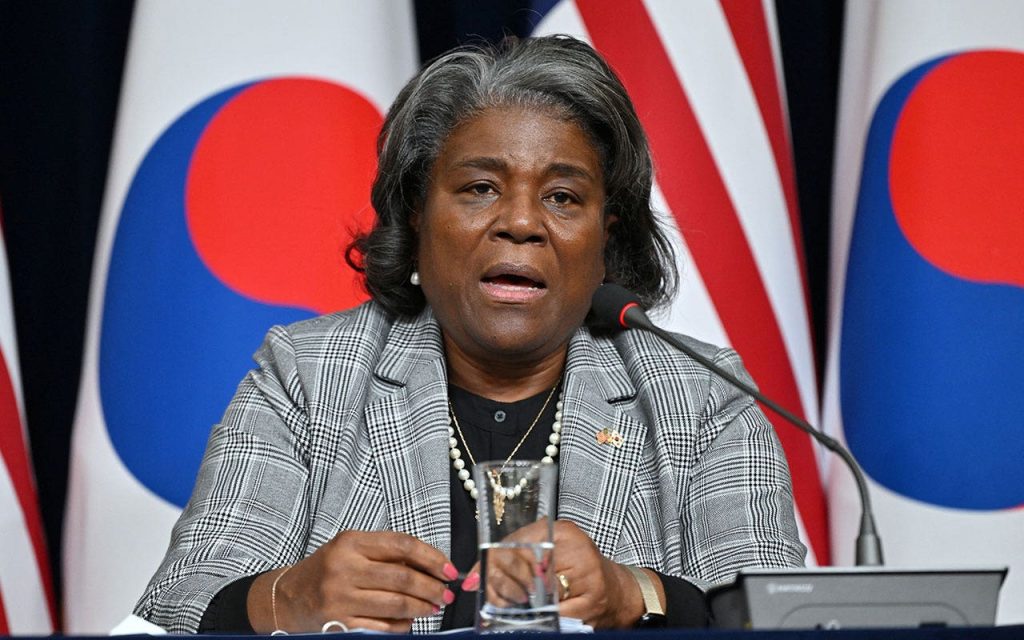U.S. Ambassador to the United Nations Linda Thomas-Greenfield expressed concerns about a U.N. resolution supporting the full membership of the Palestinian Authority, suggesting it may not contribute to a two-state solution in the Israeli-Palestinian conflict. She stated that a resolution in the Security Council may not lead to progress in achieving a two-state solution, which President Joe Biden has expressed support for and is actively working towards. The Palestinian Authority is expected to push for a vote on a draft resolution recommending full U.N. membership, despite concerns from Security Council members about meeting the criteria.
The United States, as a permanent member of the Security Council with veto power, plays a crucial role in the decision-making process regarding Palestinian statehood. A Security Council committee tasked with considering the Palestinian Authority’s application for full U.N. membership was unable to reach a unanimous recommendation, highlighting the complexities involved in the decision-making process. Any application for full U.N. membership must be approved by the Security Council and then by at least two-thirds of the General Assembly, adding further layers of scrutiny and potential obstacles.
The lack of progress towards Palestinian statehood since the signing of the Oslo Accords in the 1990s has been attributed to various factors, including expanding Israeli settlements in the West Bank. Israel’s Ambassador to the U.N. Gilad Erdan has stated that the Palestinian Authority has not met the necessary criteria for statehood, further complicating the path to achieving a two-state solution. The Palestinian Authority, led by President Mahmoud Abbas, currently exercises limited self-rule in the West Bank and remains a partner to the Oslo Accords despite challenges from Hamas, which controls the Gaza Strip.
The draft resolution advocating for full U.N. membership for the Palestinian Authority has sparked debate and scrutiny within the international community, with differing opinions on whether it would advance the goal of a two-state solution. While the United States has expressed support for a two-state solution, Ambassador Thomas-Greenfield’s comments cast doubt on the potential efficacy of the proposed resolution in achieving this objective. Heightened tensions in the region, compounded by attacks by Iran or its proxies, underscore the complex and fragile nature of the Israeli-Palestinian conflict.
Efforts to address the longstanding conflict between Israel and the Palestinians remain a top priority for the international community, with the U.N. playing a central role in facilitating peace negotiations and advocating for a two-state solution. The dynamics of the conflict, including territorial disputes, security concerns, and political divisions, continue to present significant challenges to achieving a lasting peace agreement. As diplomatic discussions and deliberations on the Palestinian Authority’s potential full U.N. membership continue, the need for a comprehensive and sustainable resolution to the conflict remains paramount.
Despite the obstacles and uncertainties surrounding the U.N. resolution and the broader Israeli-Palestinian conflict, diplomatic efforts persist in advancing the goal of a two-state solution. The voices of key stakeholders, including the United States, Israel, the Palestinian Authority, and other relevant actors, will continue to shape the trajectory of peace negotiations and potential agreements. The commitment to finding a peaceful resolution to the conflict, while navigating complex political realities and competing interests, reflects the ongoing determination to address one of the most intractable challenges in the Middle East and the international community at large.


